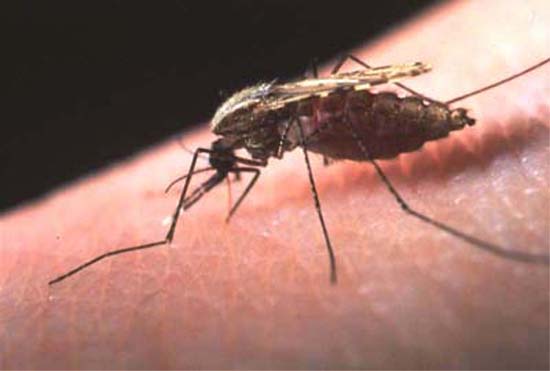More malaria hope as NIH antibody protects against infection

A single dose of a monoclonal antibody developed by scientists at the US National Institutes of Health (NIH) has provided protection for people exposed to malaria parasites for up to nine months.
The results of the phase 1 trial suggest that antibodies could be used to protect travellers, military personnel and health care workers traveling to malaria-endemic regions, but also potentially to be used for seasonal control of the parasitic infection, according to the researchers.
The antibody – called CIS43LS – was isolated from the blood of a volunteer who had developed malaria-neutralising antibodies after being dosed with an experimental vaccine, and modified to extend time it would survive in the blood.
It binds to a site on a parasite surface protein that seems to be important for infection and – crucially – is found on all worldwide variants of Plasmodium falciparum, the organism that causes the most severe form of malaria.
It is administered by intravenous (IV) infusion, which would preclude it from widespread use in many areas of the world where malaria is endemic, but could be a starting point for the develop of improved versions, for example formulations that can be delivered by subcutaneous (SC) injection.
The phase 1 study tested both IV and SC dosing of CIS43LS, but only the IV form was taken forward into a challenge stage, in which patients were deliberately exposed to mosquitoes infected with malaria parasites.
In this stage, none of the nine subjects who received CIS43LS, compared to five of six control subjects had parasites in the blood on later testing.
The finding comes after Oxford University's Jenner Institute – which was behind the COVID-19 vaccine developed with AstraZeneca – unveiled trial results showing its experimental RTS,S/AS01 malaria shot could be around 77% effective against the disease.
There is a malaria vaccine on the market – GlaxoSmithKline's Mosquirix – but this is only around 39% effective so has not been backed by the World Health Organization (WHO), although it is being used in areas hardest hit by the disease.
The CIS43LS results – which have been published in the New England Journal of Medicine – were welcomed by Anthony Fauci, director the National Institute of Allergy and Infectious Diseases (NIAID), although he said: "Additional research is needed…to confirm and extend this finding."
A larger phase 2 trial has already started in Mali to see if CIS43LS given as an infusion can prevent malaria infection in adults during a six-month malaria season, with results expected early next year.
The WHO estimates that 229 million cases of malaria occurred worldwide in 2019, resulting in more than 400,000 deaths, mostly in children in sub-Saharan Africa.











